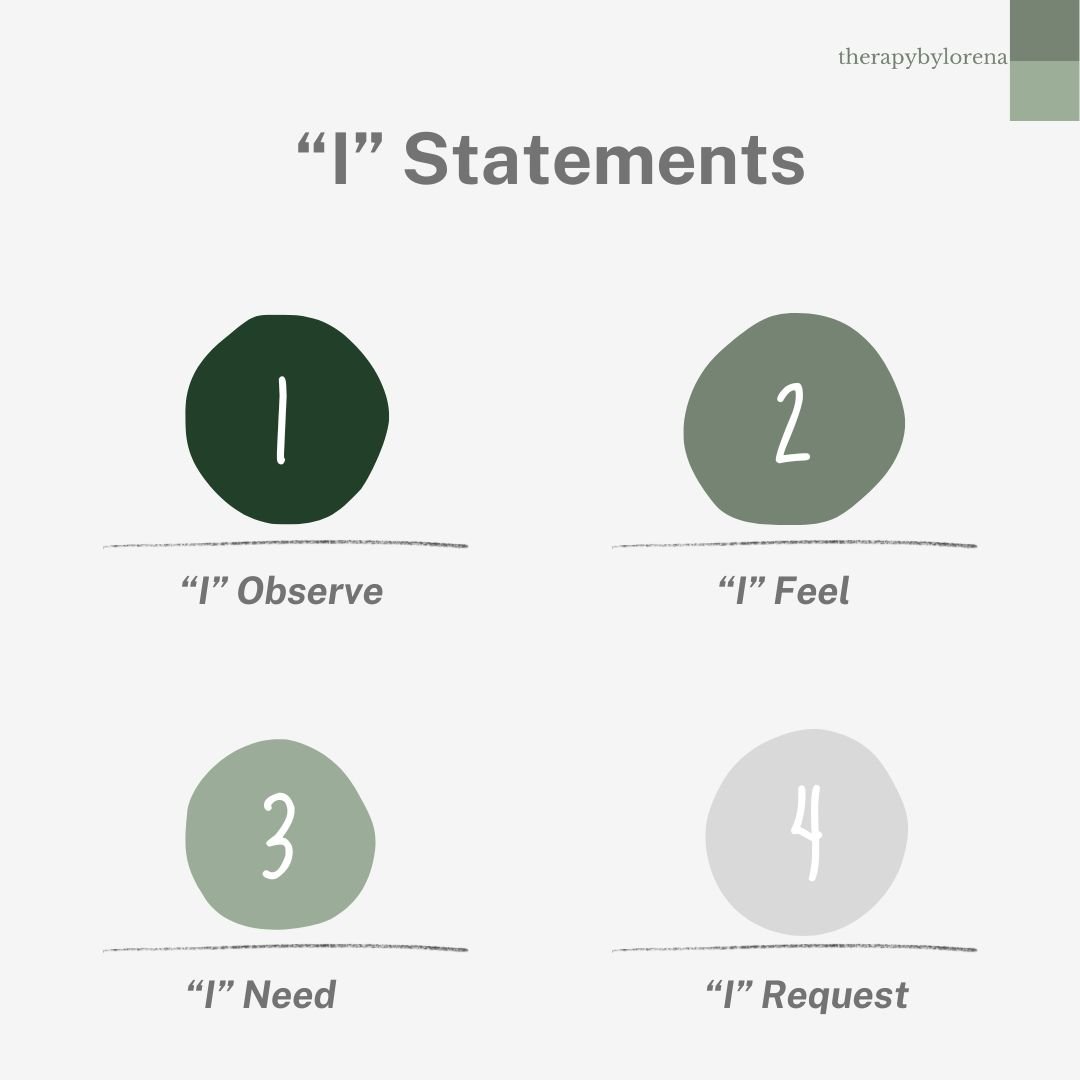“I” Statements
As a Marriage and Family Therapist, I often work with couples who struggle with communicating their feelings and thoughts in a way that leads to productive conversations. One common issue that arises is the use of "you" statements instead of "I" statements.
"I" statements are a way of communicating that focuses on expressing your own feelings and thoughts rather than blaming or accusing the other person. They are structured in a way that helps the speaker take responsibility for their own emotions and reactions.
Let's say you're upset because your partner forgot to ask you how your day went. Instead of accusing them and saying, "You forgot to ask how my day went! You never care about me," try using an "I" statement instead. You could say something like, "I feel hurt and unimportant when I am not asked about my day."
Notice the difference? The "you" statement is accusatory and puts the blame on the other person, which can lead to defensiveness and a lack of resolution. The "I" statement, on the other hand, expresses your own emotions and opens up the conversation to a more productive discussion.
Another example could be a situation where you're feeling frustrated because your partner always leaves the toilet seat up. Instead of saying, "You never put the toilet seat down! It's so annoying," try saying, "I feel frustrated and uncomfortable when the toilet seat is left up."
By using "I" statements, you're expressing your own feelings and giving your partner the opportunity to understand your perspective. This can lead to a more productive conversation where both parties can work towards a solution.
Effective communication is key to a healthy relationship. By using "I" statements, you can improve your communication skills and resolve conflicts in a way that is respectful and productive. Remember to start with "I feel," be specific, avoid accusatory language, use the present tense, and practice active listening. By using these tips, you can improve your communication and build a stronger, more fulfilling relationship.




